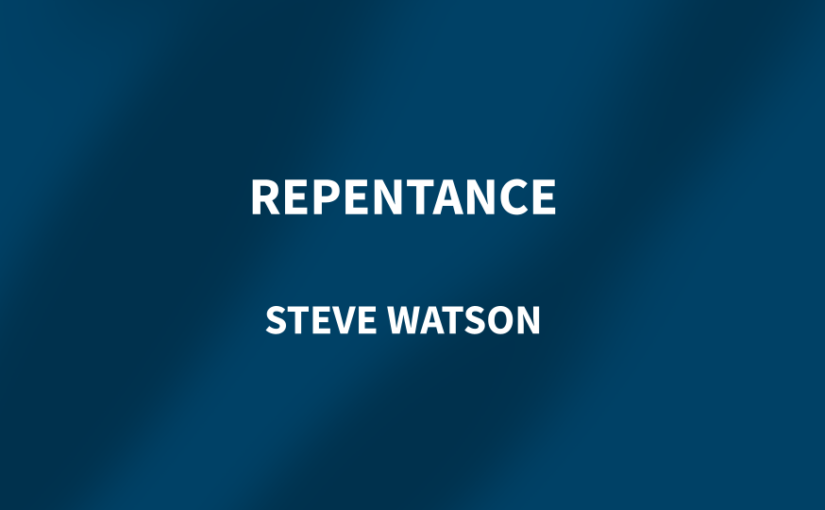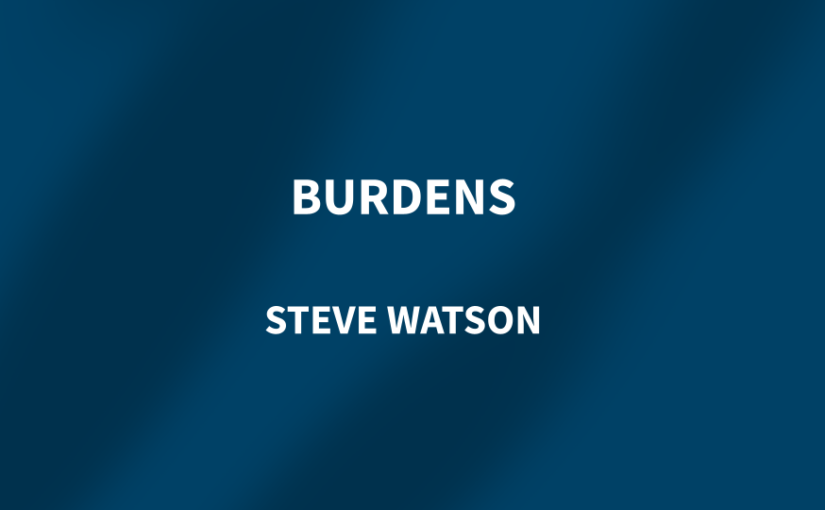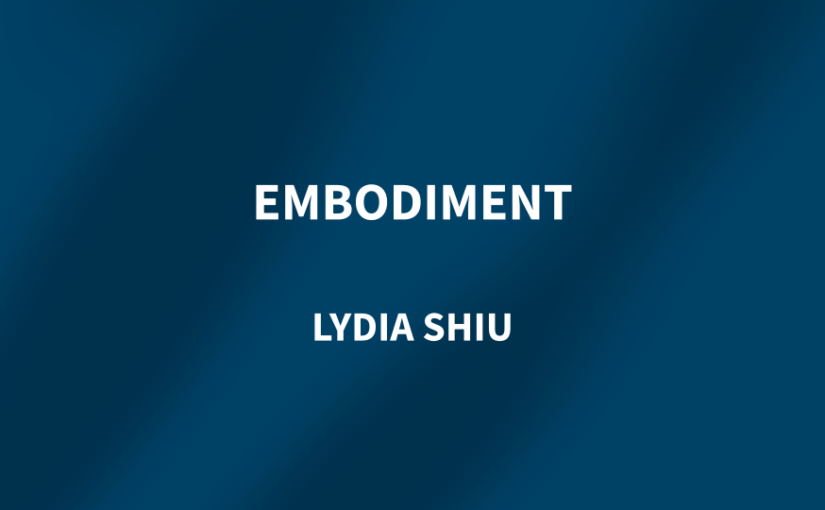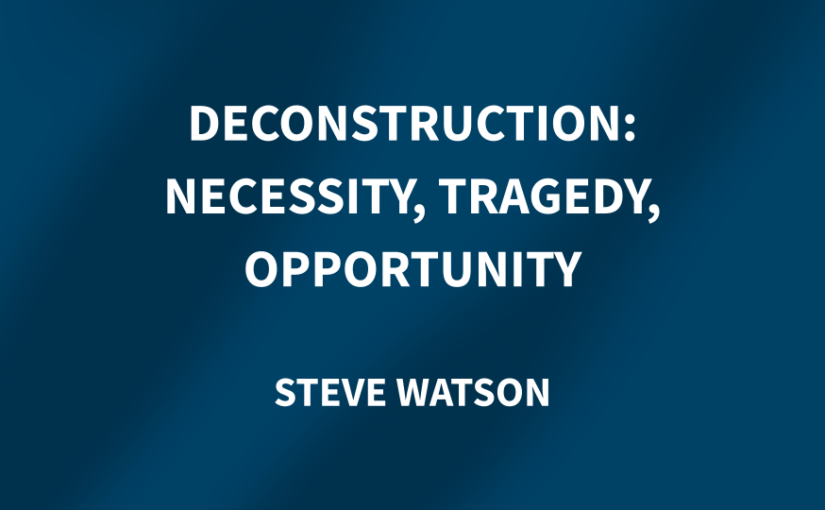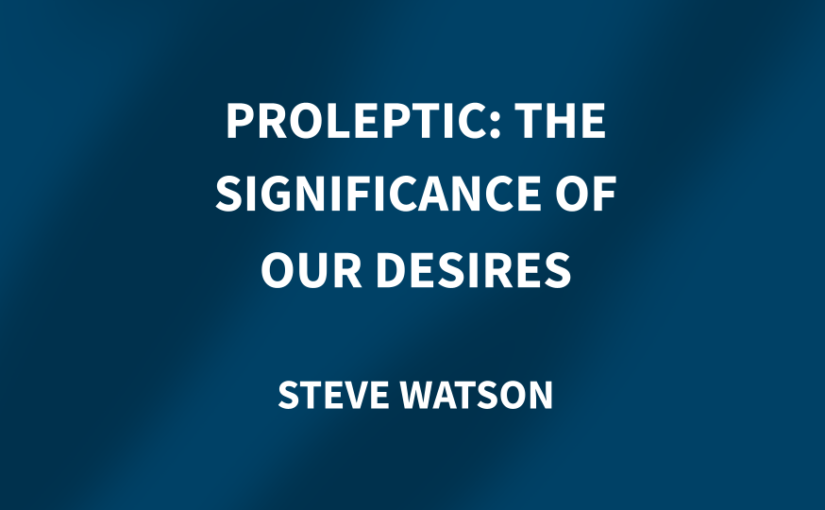So I used to be obsessed with the right way to apologize. This created a lot of issues in my life, mainly bad ones, and especially in my marriage.
Grace and I met when we were young – I was 19, she was 20 – we got married about four years later. But in our dating years and then again and again in our early years of marriage, we had a fair bit of conflict. And a lot of that was conflict about conflict.
Like how should we argue and how should we apologize.
Now in my defense, in our defense, we didn’t make it all up. A mentor in our faith community at the time taught a lot about apologies and forgiveness. And he was really specific about what he thought people should do. He basically said, like, he knew what Jesus wanted for our conflicts.
Basically the advice was this: There are bad ways to apologize.
- Like the one word, vague and flippant: Sorry!
- Or the version of an apology where you’re actually blaming the other person for being so sensitive. Like: sorry that hurt you.
- Or: I’m sorry for everyone that was offended.
Apologies should say what you actually did wrong and regret.
So far, so good. We all could use better apologies.
But then he’d teach that the person who receives an apology should quickly say out loud: I forgive you.
Which sounds holy. Jesus talked a lot about God’s forgiveness of us and God’s call to us to forgive one another as well.
And Grace and I – but especially me – took this to heart. But what it meant was that I wanted our communication – about really emotional and complicated things – that’s kind of the nature of conflict – I wanted that communication to follow rigid patterns. And if I said sorry for something, I wanted Grace to very quickly say to me: I forgive you, or I’d feel hurt.
After years of this off and on, I finally started to get what’s messed up about this. Forgiveness is a gift one gives. And you give it when you’re ready. It’s not a right to insist upon when you’re apologizing. Sometimes a lot more is needed before a person will forgive you. Like actually starting to change.
There are also ways of saying “I forgive you” that are not helpful, like offering forgiveness when you’re not ready yet or when the person is going to use your trust to harm you again. And then there are ways of offering forgiveness that aren’t about saying the words too.
Surprise, surprise, my marriage got better when I stopped being rigid about what I expected with apologies and the specific words I wanted Grace to say, and started paying more attention to what I have more control over. Which is the way I interact with my spouse – whether or not I cause harm in the first place and what I do if and when any harm occurs.
For the last sermon in our big words series, I want to talk about a word that includes apology but is much bigger than just that. The word is repentance.
I saved this for last because this is also the Sunday before Ash Wednesday, a Christian holiday of repentance. And because it’s also the Sunday before we start celebrating Lent as a church. Lent is the six weeks before Easter that for followers of Jesus has traditionally been a whole season of repentance.
What does this word mean: repent?
It’s one of the very first words Jesus says in the earliest biography of him, the Bible’s gospel of Mark.
Mark 1:13-14 (New Revised Standard Version)
14 Now after John was arrested, Jesus came to Galilee proclaiming the good news of God
15 and saying, “The time is fulfilled, and the kingdom of God has come near; repent, and believe in the good news.”
Jesus apparently said some version of these words again and again. Now’s the time. The kingdom of God is close. The beloved community, we call it, is beginning – it’s in reach. So, repent.
Repentance in the Greek text here is the word: metanoia. It means changing your mind, seems to imply the kind of changing your mind that reflects some kind of inner change too. The path to believing the good news of Jesus is a change of heart, a change of mind. We need that change, that repentance, to get to the good news, or maybe for the good news to get in to us.
Later Jesus takes this into relationships between people too. He says this:
Luke 17:3-4 (New Revised Standard Version)
3 Be on your guard! If a brother or sister sins, you must rebuke the offender, and if there is repentance, you must forgive.
4 And if the same person sins against you seven times a day and turns back to you seven times and says, ‘I repent,’ you must forgive.”
Jesus says:
speak up when harm is being done. Don’t be a bystander.
But he doesn’t say to forgive them when they say sorry. He says:
forgive them when they make a change. Forgive them in response to their repentance.
By the way, I’m going to talk way less about forgiveness today – I think we’ll have chances to talk more about that later this spring, but for today I want to focus on repentance.
Repentance is our way into Jesus’ good news for us, and repentance is part of the path to healed relationships. It can even be a prerequisite for forgiveness. Repentance is important, so why is this word uncomfortable or unfamiliar?
Well, one, we are obsessed with apologies.
I mentioned my issue with apologies in our early marriage.
I think about how we raised our kids too. What did we do every time one kid hurt another? We’d get them to apologize, teaching them what we’d been taught, not to just say the word “sorry” but to say what you’re actually sorry for.
I’m not saying it’s bad to teach your kids to apologize, it’s a good life skill, it’s just not enough. Apologies by themselves are paths to shallow and sometimes fake peace making. Which, let’s be real, sometimes shallow peacemaking is all we’re looking for, but eventually it’s not enough.
We also don’t get repentance because it wasn’t much part of our inherited faith. The history of Western Christianity centers perpetrators, not victims. Western Christianity was developed with harm doers in mind, not the people who’ve been done harm.
This is not Jesus’ story. It’s not the writers of the Bible or the first fathers and mothers of the faith. But from the 4th century on, the most influential theologians of Christianity have been aligned with the power brokers of their societies, focused on helping harm-doers not feel guilty, more than in actually stopping harm or helping harmed communities and harm-doers heal.
Thirdly, those of us who are in exile or in recovery from the too rigid, too closed minded religious systems of our youth have sometimes lost our vocabulary for sin, repentance, and forgiveness because we connect those words with too rigid moral codes or with shame.
But repentance is not about feeling shame for our bodies or our sexuality. It’s not about narrow or rigid morals. It’s about healing. It’s about getting well. It’s about learning not to be a harm doer.
I mentioned that the Greek word for repentance, metanoia, speaks to a change of mind or a change of heart. But the Hebrew word for repentance, tshuvah, means returning. The Bible’s first word for repentance means coming back to where you’re supposed to be. Rabbi Danya Ruttenberg says repentance means,
“coming home, in humility and with intentionality, to behave as the person we’d like to believe we are.”
Repentance is our way into the good news of Jesus. It’s our way into mended relationships. It’s part of the healing path for all the ways we aren’t yet fully human, the ways we aren’t yet the person we hope to be, or even the person we’d like to believe we are.
So what is repentance?
Rabbi Danya Ruttenberg has this amazing book out called On Repentance and Repair: Making Amends in an Unapologetic World. It is really good.
Ruttenberg writes about the influential Jewish medieval scholar Moses Maimonides and how he developed a five step system of repentance that can be extremely useful in how we think of all kinds of harm and repair.
Let me tell you Maimonides’ steps of repentance according to Rabbi Danya Ruttenberg. Again, there are five.
They are:
- Naming and owning harm
- Starting to change
- Restitution and accepting consequences
- Apology
- Making different choices
You’ll notice that Maimonides says not to make an apology to the person you’ve harmed until you’ve already named and owned the harm, you’ve started to change, and you’ve attempted in some way to make things right.
Because the purpose of the apology is not to get someone to say “I forgive you” (speaking to my younger self here). And the purpose of an apology is not to make a shallow, fake peace, where the harm doer gets to feel better and move on. No, the purpose of an apology is to help the person harmed to heal and to help the person who did the harm get humble and deepen their humanity again.
Sometimes we move through the steps quickly, seamlessly, almost intuitively. And sometimes it can be long and hard work.
Let me give you an example of each, and then invite you to consider what role repentance might play in your life in the weeks to come.
Here’s an easy and quick picture, where repentance looks like what I talked about last week, laying down our burdens.
It’s from the poem “I worried” by Mary Oliver. It goes like this:
“I worried”, by Mary Oliver
I worried a lot. Will the garden grow, will the rivers
flow in the right direction, will the earth turn as it
was taught, and if not how shall I correct it?
Was I right, was I wrong, will I be forgiven,
can I do better?
Will I ever be able to sing, even the sparrows
can do it and I am, well,
Hopeless.
Is my eyesight fading or am I just imagining it,
am I going to get rheumatism,
lockjaw, dementia?
Finally, I saw that worrying had come to nothing.
And gave it up. And took my old body
and went out into the morning,
and sang.
Who’s being harmed here? No one else. The over-worrying is a victimless sin. The only one being harmed is the poet, and maybe God. We do well to be free and joyful people, and God loves when God’s children are free too.
So we have a picture of quickly, seamlessly moving through repentance. The poet names and owns the harm. I’m staying inside, perseverating on my worries. That’s hurting me. She says:
it had come to nothing.
Then she starts to change – she says
“she gave it up.”
There’s no restitution, no victim to make this right with, but there’s an accepting of consequence – this is not doing me good. That’s its own kind of apology to oneself, to one’s creator, and then a different choice is made. I went out into the morning and sang.
Perhaps over time, the poet might move through these steps more slowly, reckon with the consequences of this habit, seek to get outside and sing more readily. Who knows?
But like a lot of our moves toward freedom, it’s a kind of seamless repentance. It’s not really about apology at all, but awakening to an awareness of harm, and then steps with God’s help toward a better way.
When we turn toward the good news of Jesus, here it would be the good news of Jesus’ teaching on God and birds and worry and the freedom of laying burdens down, we are coming to that good news through repentance.
One more story of repentance, a messier one. This is a church story. A collective story of repentance. Because we repent as individuals, but as groups too.
Christians and churches have a serious issue with abuse of power. So many of us have celebrated, followed, looked up to leaders who play out some kind of hero narrative for us. And so many of them, usually men, usually in our context white men, are caught up in their own ego and have abused that power and tried to cover it up.
There’s a podcast by Brad Onishi called Straight White American Jesus. It’s an expose of evangelicalism and Christian nationalism. And they had this whole thing a while back about something called the new apostolic revival, and its connections to Trumpism and the January 6th attacks. Scary and gripping stuff.
Now, let me clear that our church was never a promoter of any of this kind of violence or a vision of Christianity that would dominate public life and government and all that. But we were just a couple of steps removed from some of the people involved and I think our church in its early days had its own blind spots on looking up to talented, charismatic men and giving them too much power.
In our early days, many people here were enamored with the ministry of Bill Johnson and Bethel Church. There were people who traveled to California just to pray and worship there. That’s a church that has produced a lot of emotional worship music, they’ve purported to be the site of many miracles. They also celebrate charismatic leadership of people who supposedly have a more direct line to the voice of God.
When I was hired as our second senior pastor, 10 years ago, I was asking around about what I should be reading to understand our church and the values it was formed upon. And one of the people who was recommended was a friend of Bethel, a man named Peter Wagner, who’d been a mentor to the Vineyard group of churches we used to be part of. Wagner promoted a model of pastoring where the senior pastor of a church would have as much power and as little constraint, as little accountability as possible so that pastor could listen to God and lead the people wherever they felt God wanted – quickly, forcefully, without restraint.
Maybe you know where this is going. These white men who supposedly have a direct line to God often seem to get very odd things in their mind that they think God wants, things that elevate their own power or other authoritarian men like themselves. Bill Johnson and his team promoted Trump as God’s man of the hour. Peter Wagner spent his dying days doing the same. And there are deeper, more troubling connections between these men, their colleagues, and the support of violent white Christian nationalism.
Again, we didn’t promote that stuff, but we had our own tendency to put charismatic white male leaders on pedestals, especially those who claimed a really direct connection to God. We kind of hungered for that connection and trusted their voices.
Some of those people meant well and were helpful. Others didn’t. A few had their sin and abuse of power exposed. Just this past week I realized we still had a sermon deep in our archives from someone who preached here before but has been credibly accused of abuse of power in his relationships with women. We pulled it down.
I’m really proud of this church and our history. We’ll be celebrating our 25th anniversary this year. So many of our roots and our early mission still carry us! But this blind spot on power, and the manipulative and sometimes dangerous things that happen when we put people on pedestals was a problem. And so men holding power without accountability has been an area of repentance for our church under my time of stewarding this role of senior pastor.
So, the steps: naming and owning harm.
We had conversations on the Board early in my tenure about what goes wrong when men promote their own special connection to God and lead out of that.
Starting to change
The first thing our church did when I was hired was we gave the Board of this church more power. I insisted that they evaluate me, in writing, each year and that they make more important choices for the church. I’m a leader in this community. I have some authority. But none of us want me to have any more than I earn, and we want me, I want me too! – to lead in partnership with others and to be accountable.
Restitution and accepting consequences/apology – This has been messier. It hasn’t always been clear how to go back to our church’s early years and figure out who was or who wasn’t hurt by our church’s connections to abuse of power, but I do believe that we faced consequences for this as a community, and when I become aware of a situation in which I feel able to apologize on behalf of the church, I feel able to do so now.
I’m certainly sorry to this community for two people I allowed to visit and speak here in my early years as a pastor, one in 2013 and one in 2016. Both seemed very talented but they were also unaccountable free agent types who later have said or done things I view as harmful. We’re done with unaccountable men being connected to this ministry. I’m sorry that in our early, fast growing years as a church when so many wonderful things were happening that we also weren’t learning how to watch for and prevent manipulative power and abuse of power.
And then making different choices – continuing to do the work.
We are making a lot of choices now to be healthy and humble about power. We won’t invite traveling preachers who aren’t accountable to real Boards and communities. Our Board has done reading together about how to prevent abuse of power in our church. I like preaching. I think I’m good at it. But I preach less than most senior pastors, both because our associates, Pastor Ivy and Lydia are awesome at this and we want their wisdom and because it’s a way of not overcentering any one person’s voice. We promoted Trecia Reavis a couple years ago from director of operations to executive pastor because she is an excellent leader and we wanted the church to have a real partnership between me and her on the institutional leadership of this community.
It turns out that not following the voice of one man isn’t a loss at all. It opens up more community to more people’s gifts, and to a more beloved community way of being in the world. Like most processes of repentance, you gain so much more than you lose. You get to leave behind an inferior way of being and walk into the good news of something better.
Repentance – changes of mind, changes of heart, coming home to our best selves – is serious and holy work. Repentance opens us up to good and healthy relationships. And repentance opens us up to the good news of Jesus.
We start Lent this Wednesday with our Ash Wednesday service, and next Sunday, when our preaching and guide on this year’s theme of Earth begins.
The first quarter of Lent – a week and a half in the guide, focus on humility. We’re invited to think about our own earthly mortality and our needs for change and repentance.
Here’s my question, friends.
Where is your life falling short of the person you consider yourself to be? Where is your life out of alignment with the person you believe you are meant to be, who God calls you to be?
I’m not asking you to feel lousy about that. I’m also not asking you to apologize to anyone. We’d do better if we learned to be quicker to humility, quicker to soul-searching and attempting to change and make things right, and slower to apologize.
What I am asking you is to be curious about yourself.
Where do you want to turn? Where do you want to heal?
Let’s bring those questions with us to the communion table.
In communion we remember Jesus’ final meal before his death, when he took the cup and said: This bread is my body, which is given for you. This cup is the new covenant by my blood, which is poured out for you. And now we eat and drink in memory of me.
We eat and drink as a kind of repentance as well, that Hebrew word tshuvah, or returning. We return to God. We come home to God and come home to ourselves, to the person we believe we are meant to be.
If there’s a particular way in which you seek repentance in this season, in which you seek healing or turning or change, I invite you to name that to God as a prayer, saying to God that you offer your desire for change, your desire for healing, your desire for return, and welcome God’s presence and power.


